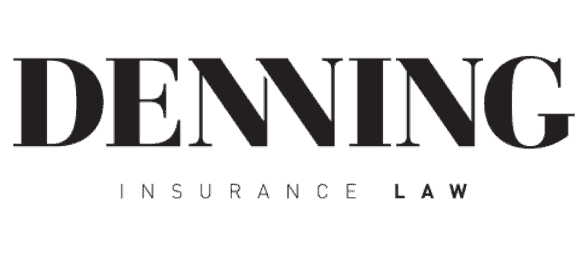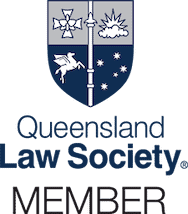Introduction and Important Note
Further to our article regarding ‘How to make an insurance claim’, we now touch upon what most likely will happen once your claim is lodged. The most obvious step is how your Insurer will investigate your claim to decide if your insurance claim is accepted.
Your insurer’s investigation of your insurance claim is one of the most crucial, yet problematic, steps in the claims process. We say ‘problematic’ because many clients of Denning Insurance Law contact us due to problems they encounter during the investigation phase of their insurance claim.
In recent times, Denning Insurance Law has received requests for legal assistance for reasons such as:
- My Insurer is asking me too many personal questions. Do I have to answer these questions?
- I find the whole process to be so invasive and arduous. Do I need to be involved?
- Why do I need to hand over bank statements and telephone records?
- My Insurer keeps hounding me for documents and information which I do not feel are relevant to my insurance claim. Why are these documents needed by my Insurer?
We address these queries and concerns below. However, this article is a general guide and is not legal advice.
This article does not override the actual terms and conditions of the insurance policy or Product Disclosure Statement (PDS) you are reading in respect of your actual insurance claim. Every policy document is different and no two (2) insurance claims are the same.
What is meant by the duty to co-operate with an insurer?
The PDS and the co-operation clause
The PDS usually sets out the manner as to how your insurance claim will be investigated, handled and eventually settled, depending upon the type of insurance claim.
Additionally, the PDS will contain a provision requiring you to cooperate with your Insurer. Each PDS is different, but your PDS may contain a provision such as:
Cooperating with us
You must provide reasonable assistance to us, including:
- being truthful and frank at all times;
- providing us with relevant information and documents we ask for;
- attending interviews about the claim;
- making your property available for us to inspect or examine; and
- responding to our requests in a timely manner.
At all times you must refrain from behaving in a way that’s improper, hostile or threatening towards us, our representatives, our suppliers or third parties involved in an incident.
The Law and the duty of the utmost good faith
Pursuant to Section 13 of the Insurance Contracts Act 1984 (Cth) (ICA), a term is implied in each contract of insurance which requires each party to act towards the other party with the utmost good faith in respect of any matter arising in relation to the insurance contract.
Courts have determined that the duty of utmost good faith obligates an Insured to provide reasonable assistance to the Insurer to enable the Insurer to assess the Insured’s claim.
Dealing with Loss Adjusters and Factual Investigators
To investigate your insurance claim, your Insurer might engage third parties to assist with the investigation process. Those third parties usually include Loss Adjusters or Factual investigators (Adjusters).
The General Insurance Code of Practice (GICOP) requires your Insurer to tell you, within five (5) business days, if your Insurer has appointed an Adjuster, as well as explain the Adjuster’s role to you.
Adjusters are not normally employees of your Insurer. Rather, Adjusters are employees of companies which contract with insurance companies. Adjusters are specialists in the field of investigating insurance claims and, subject to the type of insurance, an Adjuster may hold certain qualifications or an investigation licence.
Adjusters are busy people who are expected by Insurers to quickly and efficiently assess insurance claims. This is more so the case in times of catastrophic weather events when Adjusters are assessing a high volume of urgent insurance claims for stressed customers.
Adjusters take instructions from Insurers and an Adjuster’s role is to obtain all relevant information and documentation from you for your Insurer, so that your Insurer can determine your claim. Adjusters are not the decision maker of your insurance claim.
Therefore, if you desire your insurance claim to be processed quickly, it is best to work with the Adjuster in a constructive and speedy fashion.
GICOP also spells out how an investigation and interview should be conducted (e.g. your Insurer will ensure that the Adjuster investigates only those matters they need to investigate, and in an appropriate and respectful manner).
If you are preparing for an interview with an Adjuster in respect of your insurance claim, and you require assistance or advice, please contact us at Denning Insurance Law.
What is relevant to an insurance claim?
Insofar as Insurers are concerned, the GICOP states, “When we are assessing your claim, we will only ask for and rely on information that is relevant to our decision.”
As per the example wording quoted above, most PDS documents state, “You must provide us with … relevant information and documentation …”
Both GICOP and most PDS documents use the word “relevant” when describing the information or documentation required to assess your insurance claim. But what is “relevant”?
Well, as the old saying goes, ‘How long is a piece of string?’ There is no simple or clear answer which applies to every single insurance claim.
The Australian Financial Complaints Authority (AFCA) considers and determines complaints from Insureds about Insurers. AFCA’s determinations are not binding like court precedents, but AFCA aims to create consistent determinations for the benefit of the insurance industry.
The following comments have been extracted from AFCA determinations over the past two (2) years which considered complaints regarding an Insurer’s requests for information or documents:
- An insurer is entitled to investigate a claim to verify the circumstances of the incident and determine the extent of the Insurer’s liability for the loss claimed.
- An insurer is entitled to investigate the circumstances of a claim and to reasonably test the Insured’s version of events regarding the loss.
- An Insurer should confine its enquiries to information which it reasonably requires to make a decision.
- An Insurer may request documentation or information to verify the circumstances of the claim and information provided by an Insured at interview.
- All information requested by an Insurer must be relevant, reasonable and not unnecessarily invasive.
The abovementioned comments are helpful and do offer some guidance, but there are many factors which determine what may be relevant for your particular insurance claim. At Denning Insurance Law, we have the experience to ascertain what is relevant for your insurance claim.
We have the skills to communicate with Insurers on your behalf to question the relevance of the material and information being sought from you. We are also able to advise you when and how you should object to providing information or documents to your Insurer.
Therefore, if during your claim process you feel you are being asked to divulge unnecessary or detrimental information, please contact us at Denning Insurance Law.
What if I choose to not cooperate with the Adjuster or my Insurer?
If an Insured does not cooperate with an Insurer, then the Insured is most likely breaching the insurance contract and not complying with their duty of utmost good faith.
As a result, your Insurer is not required to take any further action in relation to your claim, and your Insurer is entitled to decline your insurance claim for not cooperating.
Practical Takeaways
If you wish for your insurance claim to be handled professionally and efficiently by your Insurer, then you should cooperate with your Insurer’s employees (e.g. claims staff) or contractors (e.g. Adjusters).
When you meet with an Adjuster, make sure you are comfortable with why you are meeting, what is expected of you and how the requested documents and information are relevant to your insurance claim.
If you require legal advice about how to cooperate with your Insurer for your insurance claim, or any aspect of insurance, please contact us at Denning Insurance Law on (07) 3067 3025.





